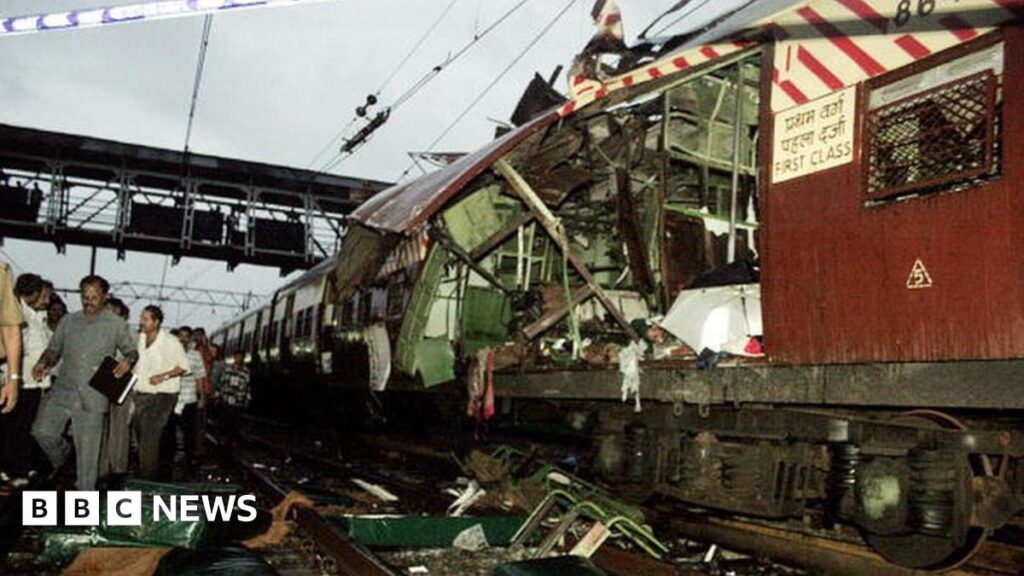In a significant legal development, the Bombay High Court has acquitted Suhail Shaikh, a Pune resident formerly charged in connection with the 2006 Mumbai train blasts that claimed over 200 lives and left thousands injured. The verdict has brought a wave of relief to Shaikh’s family, who expressed their profound gratitude for the justice delivered after years of uncertainty and legal battles. “We had lost hope, but he did not,” stated a family member, highlighting their unwavering faith in Shaikh’s innocence amid the long struggle against the backdrop of a case that has haunted many for nearly two decades. As the community grapples with the implications of this ruling, the acquittal serves as a reminder of the complexities surrounding national security cases and the enduring impact of wrongful accusations on families.
Acquittal of Suhail Shaikh Sparks Reactions from Victims’ Families and Legal Experts
The recent acquittal of Suhail Shaikh by the High Court has elicited a wave of emotional responses from the families of the victims of the 7/11 Mumbai train blasts. Many expressed a profound sense of loss and helplessness, as years of legal battles culminated in a verdict that they had not anticipated. Relatives of the victims lamented the decision, stating that it feels as though justice has been denied yet again. Some of the poignant sentiments shared by the families included:
- Disbelief: “We hoped for justice, but this decision has shattered our faith,” one family member remarked.
- A sense of betrayal: Many voiced feelings of betrayal by the judicial system, asserting that the memories of their loved ones continue to bear the weight of unresolved justice.
Legal experts are divided in their opinions regarding the implications of this acquittal. Some argue that the judgment underscores significant flaws in the prosecution’s case, particularly in securing reliable evidence against Shaikh. Others contend that this ruling strengthens the argument for more rigorous standards in handling terrorism-related cases. The implications of the decision resonate beyond the court, raising questions about the robustness of investigative procedures and the collection of evidence in terror-related incidents. Key observations made by legal analysts include:
- Legal Oversight: The defense successfully highlighted gaps in the prosecution’s case.
- Future Precedence: This ruling may influence how similar cases are approached in the judiciary moving forward.
Analysis of the Long Legal Battle in the 7/11 Mumbai Train Blast Case
The lengthy legal process surrounding the 7/11 Mumbai train blast case has been characterized by numerous trials, appeals, and significant public interest. Over the years, the case has faced various challenges, including the complexities of evidence gathering and the shifting testimonies from eyewitnesses. The controversy intensified as key aspects of the prosecution’s arguments were dissected, revealing discrepancies that fostered doubt about the veracity of the charges. For many involved, the drawn-out nature of the hearings led to a prolonged sense of uncertainty that highlighted the frailties of the judicial system.
Despite these hurdles, the acquittal of Suhail Shaikh serves as a critical turning point, prompting discussions about justice for the accused and the integrity of investigative practices. The family expressed their relief following the verdict, emphasizing their steadfast belief in his innocence throughout the ordeal. This case has not only garnered attention due to the tragic impact of the blasts but also underscores the importance of a fair trial and the presumption of innocence, which are paramount in any democratic society. Additionally, the implications of this case on public policy and community confidence in law enforcement continue to resonate.
Implications of the High Court’s Ruling on Future Terrorism Trials and Justice Reform
The recent acquittal of Suhail Shaikh by the High Court in connection with the 2006 Mumbai train blasts presents significant implications for future terrorism trials in India. This ruling not only raises questions about the integrity of the evidence and judicial processes involved in high-stakes terrorism cases but also highlights systemic issues that require urgent reform. The court’s decision reinforces the critical need for strict adherence to legal protocols and transparent investigative practices to prevent miscarriages of justice. As the public and legal experts dissect the implications of this ruling, there is a consensus that a more robust framework is essential to safeguard against wrongful convictions in the name of national security.
Moreover, this case serves as a catalyst for broader discussions on justice reform in India. The tension between maintaining national security and upholding individual rights often leads to questionable legal practices, including the use of coerced confessions and unreliable witness testimonies. Key areas for reform should include:
- Strengthening Evidence Collection: Implement stricter guidelines to ensure that evidence is collected ethically and relevantly.
- Judicial Training: Enhance the training of judges and legal professionals to recognize and address biases that may compromise fair trials.
- Public Oversight Mechanisms: Establish independent bodies to oversee terrorism-related investigations and prosecutions.
As the legal community reflects on this ruling, discussions around these necessary reforms are more critical than ever, reminding us that the pursuit of justice must be unwavering, even in the face of potential threats to national security.
Key Takeaways
In a significant development, the Bombay High Court’s acquittal of Suhail Shaikh in the 7/11 Mumbai train blasts has brought a renewed sense of hope for his family, who had long grappled with despair following his conviction. The verdict not only underscores the complexities of the case but also highlights the ongoing struggles faced by those caught in the web of judicial proceedings. As family members express their relief and gratitude for the outcome, the decision raises questions about justice, accountability, and the broader implications for similar cases in the future. The saga of Suhail Shaikh reminds us of the crucial importance of due process and the enduring pursuit of truth in the aftermath of tragedy. As this chapter closes, it opens the door for further discussions on the implications of the verdict for the victims of the blasts and the legal system at large.
